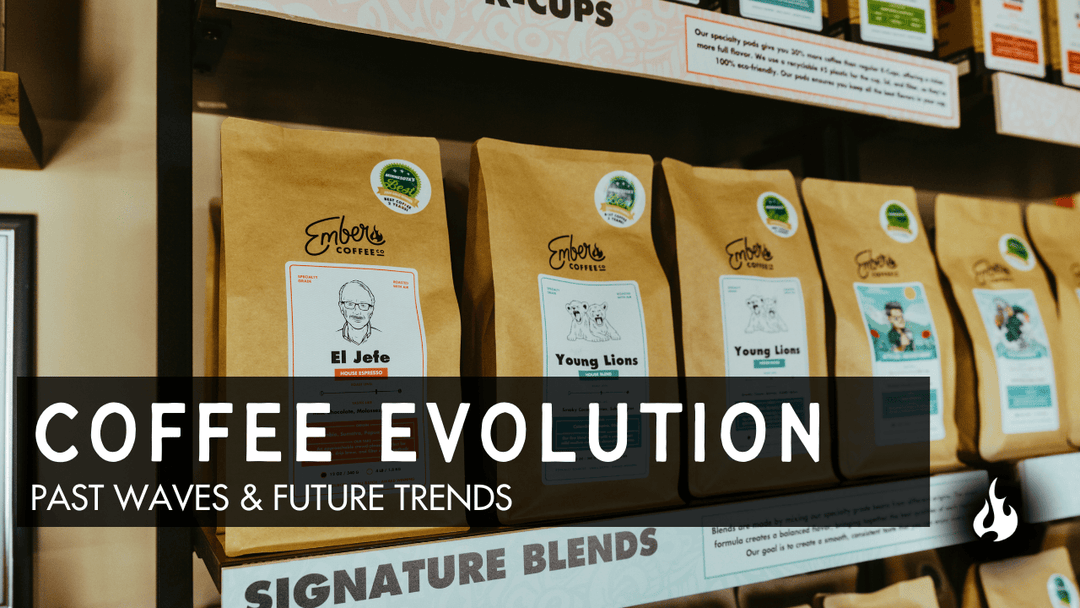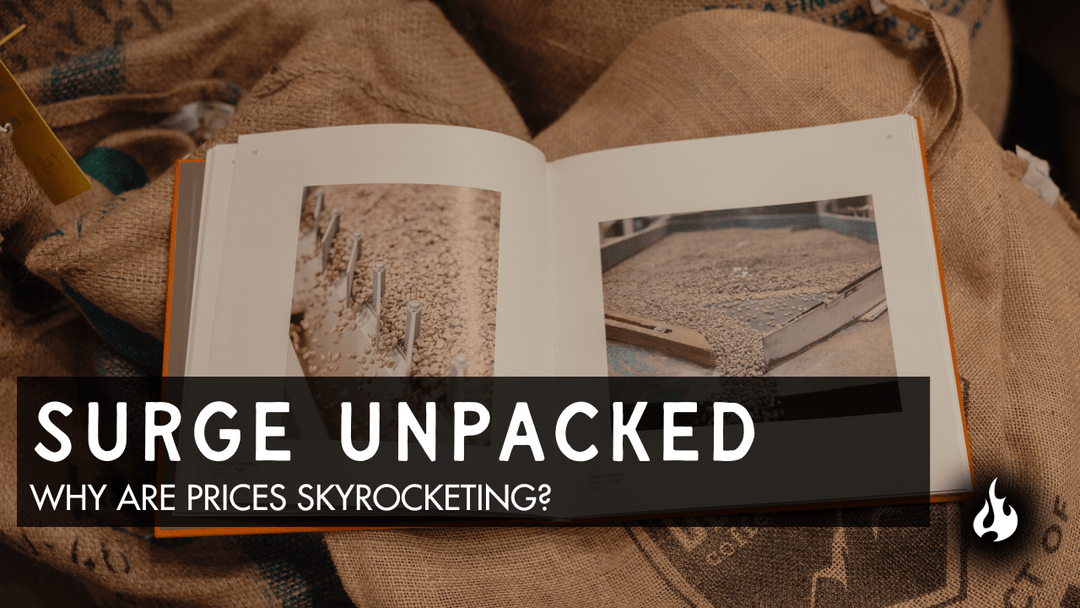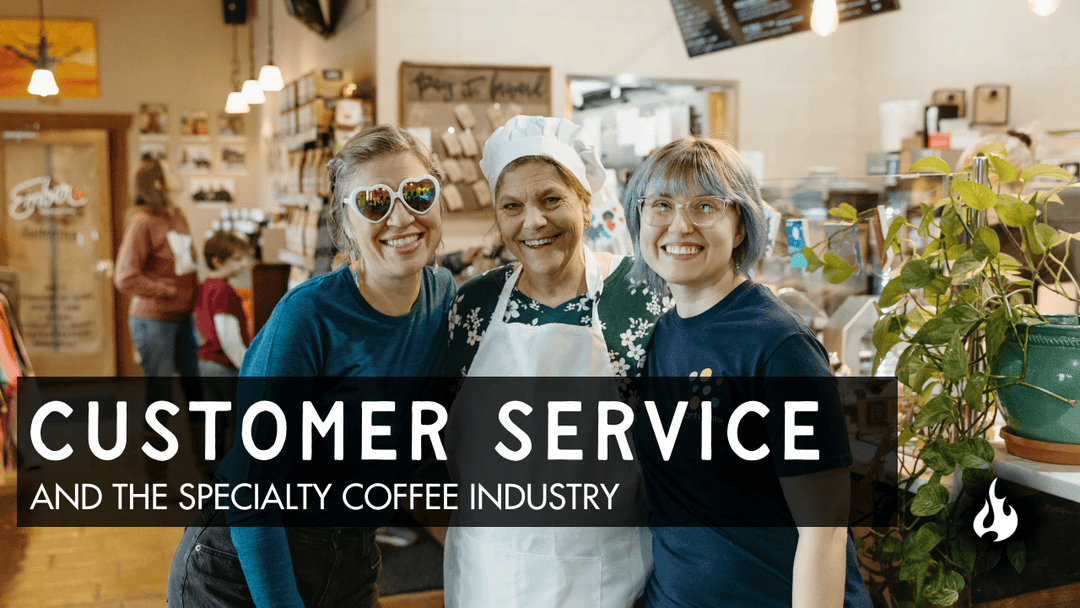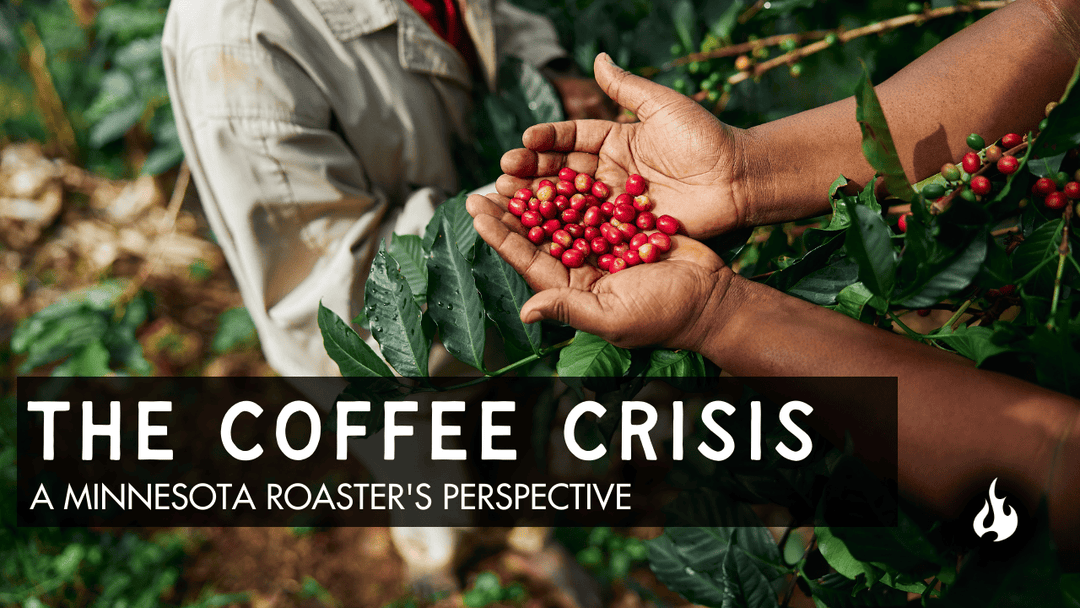The Oat Milk Surcharge Debate and Its Impact on Coffee Culture
Walk into any coffee shop today, and chances are you’ll see customers sipping lattes made with oat milk.

Walk into any coffee shop today, and chances are you’ll see customers sipping lattes made with oat milk.
Over the past decade, oat milk has emerged as the star player in the plant-based milk industry, earning its reputation as the top dairy alternative for coffee lovers. But with this meteoric rise comes an equally heated debate: is it fair for coffee shops to impose surcharges for oat milk?
For small businesses, these charges are often tied to the elevated cost of plant-based milks. Yet for consumers, especially those lactose-intolerant or environmentally conscious, this added cost can feel discriminatory. This conversation is more than just about coffee preferences; it raises crucial questions about cost management, ethics, and customer loyalty in an evolving industry.
At Ember Coffee, where we strive to offer the best coffee in Minnesota with sustainable practices and community-first values, this is a topic we deeply empathize with.

Why Oat Milk Costs (and Means) More in Coffee Shops
The rise of oat milk in coffee shops has been nothing short of a phenomenon. Its journey from a niche dairy alternative to a standard offering has reshaped the way cafés cater to evolving consumer preferences. But while oat milk has cemented itself as a favorite, especially among specialty coffee lovers, few stop to consider why it often comes with a higher price tag. The answer lies in a complex web of economics and ethics that begins long before the milk is steamed and poured into your morning latte.
The Rise of Oat Milk as a Coffee Staple
Oat milk’s appeal is undeniable. Since 2017, it has gained a reputation as the perfect complement to coffee. Its neutral flavor and creamy consistency create a rich texture that enhances the coffee-drinking experience. Baristas, too, have embraced it. Unlike many other plant-based alternatives, oat milk integrates seamlessly into microfoam, making it an ideal choice for latte art and specialty drinks.
Customers have noticed. A recent report by World Coffee Portal reveals that in the UK, oat milk is now the most popular non-dairy option, with nearly 28% of customers in branded coffee shops choosing it over other alternatives. Across the pond, oat milk has become so prominent that major U.S. coffee brands like Stumptown and Blue Bottle have made it their default milk option. Its success is no accident—oat milk has positioned itself as the go-to choice for those who want a better balance of taste, texture, and sustainability in their morning brew.
The Hidden Costs of Oat Milk
But this rise in popularity comes with a price, quite literally. Oat milk is often more expensive than dairy or other plant-based options, and this higher cost isn’t arbitrary. The economics behind oat milk production reflect a series of deliberate choices and challenges.
For starters, there’s the production process itself. Unlike dairy, which has been standardized for decades, plant-based milks require extensive research and development to achieve a flavor and texture that appeals to consumers. Companies invest heavily in creating oat milk that froths perfectly, tastes neutral enough to pair with coffee, and remains shelf-stable for longer periods. These innovations don’t come cheap.
Then there’s the sourcing of ingredients. Many premium oat milk brands pride themselves on using high-quality, ethically sourced oats. Some prioritize organic or gluten-free options, further adding to their value—and their cost. For cafés dedicated to providing the best possible product to their customers, these considerations are non-negotiable, even if they raise the price.
Transportation and packaging also play a role. Many oat milk brands use eco-friendly packaging, such as Tetra Paks, which align with the sustainability values of their target market but inevitably increase overhead costs. Shipping these products to coffee shops, often from specialized suppliers, adds another layer of expense.
Recent data from Mintec highlights the price disparity between plant-based and dairy milks, showing that retail prices for plant milks, including oat milk, are often double those of traditional dairy. While some coffee shops absorb these costs to maintain customer goodwill, others argue that surcharges on plant milks are necessary to stay competitive and maintain their profit margins.
More Than Just Milk
For many café owners, the decision to offer oat milk isn’t just about economics—it’s about aligning with customer values. Oat milk embodies the growing demand for sustainability, ethical sourcing, and high-quality ingredients, making it more than a mere substitute for dairy. Its popularity reflects a broader shift in how people approach their food and drink choices, prioritizing products that align with their ethics and lifestyle.
So, the next time you order that oat milk latte and notice the extra charge, remember that it’s not just milk you’re paying for. It’s the research, the sourcing, the packaging, and the values behind the product. In an industry as competitive as specialty coffee, those few extra cents represent more than cost—they represent deliberate choices to meet the evolving expectations of today’s coffee drinker.

What Do Customers Think?
The debate over plant milk surcharges has divided opinions among customers and businesses alike. While some view the added costs as a necessary part of business economics, others see them as an unfair barrier to accessibility. A recent poll conducted by Perfect Daily Grind revealed that 53% of respondents feel the charges for plant-based milk are justified, citing the higher production costs of alternatives like oat, almond, or soy milk. However, the remaining 47% either question the ethics behind these fees or strongly oppose them altogether, suggesting that the discussion is far from settled.
Ethical Concerns on Accessibility
One of the most compelling criticisms against plant milk surcharges centers on accessibility. For many consumers, plant-based alternatives are not just a trendy choice but a dietary necessity. Lactose intolerance affects a significant portion of the global population, and the statistics are particularly stark in communities of color. Research indicates that 90-100% of East Asians are lactose intolerant, along with high percentages in African, Indigenous, and Hispanic populations. For these groups, dairy milk isn’t an option—it’s an impossibility.
This has led to growing frustration among consumers, who argue that surcharges unfairly target minorities and create financial roadblocks for those who rely on plant milks as an essential part of their diet. The controversy reached new heights when advocacy groups began criticizing Starbucks for continuing to charge extra for plant-based milk in the U.S., despite eliminating these surcharges in several European markets. Activists argue that such practices perpetuate "dietary racism," limiting access to affordable, inclusive food choices. This ethical dilemma has sparked debates across the coffee industry, forcing businesses to reconsider their pricing strategies.
The Coffee Shop Dilemma
For independent coffee shops, the issue of plant milk surcharges isn’t just about fairness—it’s about survival. Rising food and energy costs have driven up expenses across the board, leaving many small businesses with an impossible choice: absorb the extra costs of plant milk or pass them on to customers. For many, passing on the costs feels inevitable. Without the financial leverage of large corporations, these small businesses often operate on razor-thin profit margins.
However, balancing business needs with customer expectations is no easy task. Charging an additional $0.50 to $0.80 for oat milk may seem like a small price to pay, but for price-sensitive consumers, it can feel alienating. Many independent coffee shop owners fear that these surcharges might drive loyal customers away, particularly as research from McKinsey shows that price increases impact plant milk sales more significantly than dairy. The challenge, then, is to find a pricing structure that covers costs without eroding trust or customer loyalty.
Starbucks vs. Small Businesses
The disparity between large chains like Starbucks and small, local coffee shops further complicates the debate. While Starbucks has faced criticism for its plant milk surcharges in the U.S., it has the resources and scale to eliminate these fees in European markets—a decision that some see as a step toward greater accessibility. Smaller coffee shops, however, don’t have the same luxury. Independent businesses, such as Minnesota-based Ember Coffee, often struggle to compete in a market dominated by big-name brands, all while managing their limited resources.
For these small businesses, every cent counts. The decision to charge extra for plant milk isn’t rooted in greed but in necessity. Yet, as the public conversation about pricing ethics grows louder, even small coffee shops are being forced to examine how their policies align with their customers' expectations and values.
In the end, the debate over plant milk surcharges is more than just a question of economics—it’s a reflection of the broader challenges facing the food and beverage industry. As customers demand more affordable, inclusive options, businesses must navigate the tricky balance between profitability and fairness, ensuring that their practices resonate with both their values and those of their communities.
Thinking Beyond the Surcharge
The oat milk surcharge debate has sparked important conversations about inclusivity, sustainability, and business practices in the coffee industry. While the issue may seem simple on the surface, it presents an opportunity for businesses to rethink how they approach pricing and customer engagement in creative ways. Some forward-thinking coffee shops have already started experimenting with innovative solutions that go beyond the traditional surcharge model.
One potential approach is to make oat milk the default option for all drinks. Chains like Blue Bottle and brands such as Minor Figures have explored this idea by slightly raising the overall price of their drinks, thereby eliminating the surcharge altogether while still maintaining reasonable profit margins. This small pricing adjustment simplifies the decision-making process for customers and makes plant-based choices feel more accessible and inclusive. By normalizing oat milk as the standard, these businesses are subtly encouraging a shift toward sustainability without alienating their customer base.
Another strategy lies in reshaping how oat milk is marketed. Many customers are willing to pay extra when they feel a product aligns with their values. By highlighting features like “organic,” “sustainably sourced,” or “minimal ingredient,” coffee shops can elevate the perception of plant-based milks. This approach not only justifies premium pricing but also creates a sense of pride and purpose for customers, who see their purchase as supporting environmentally friendly practices.
Inclusivity can also play a vital role in a business’s pricing policy. Instead of applying blanket surcharges, some coffee shops are considering ways to offer discounts to specific groups, such as students or communities with higher rates of lactose intolerance. By adopting pricing models that acknowledge the diverse needs of their customers, businesses can foster goodwill and build deeper connections with the communities they serve. This kind of thoughtful, inclusive pricing helps transform coffee shops into spaces that feel welcoming for everyone.
Finally, reducing costs on the supply side can be an effective way to address the surcharge debate without affecting customer pricing. By negotiating better rates with suppliers or partnering on sustainable solutions, such as locally sourced oat milk, coffee shops can lower expenses while enhancing their commitment to the local community. This approach not only improves margins but also strengthens customer loyalty by tying the business to regional sustainability efforts.
These creative strategies show that the oat milk surcharge debate is more than just a pricing issue—it’s a chance for businesses to lead with intention, adapt to evolving consumer values, and create a more inclusive and sustainable coffee culture.

Where Does the Coffee Industry Go From Here?
The debate about oat milk surcharges won’t die down anytime soon, but it reflects a broader trend in consumer expectations for inclusivity, ethical practices, and transparency in business. Specialty coffee brands that address these concerns head-on will position themselves as community leaders well into the future.
At Ember Coffee, we are committed to embedding ethical sourcing practices and transparent pricing into our philosophy. Whether you prefer oat milk, almond milk, dairy milk, or something else entirely, we believe coffee is for everyone.
Want to experience the best coffee in Minnesota while sipping on your preferred milk option? Visit our shop in Big Lake, MN today to enjoy specialty coffee that aligns with your taste and values.
This article is part of our effort to foster inclusive, high-quality coffee culture in Minnesota. For more insights on sustainable practices and advanced brewing techniques, check out *our research.*







